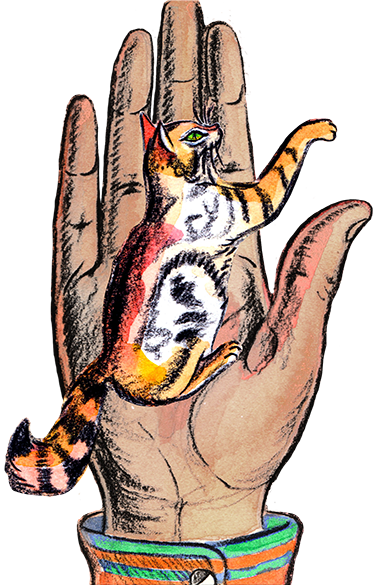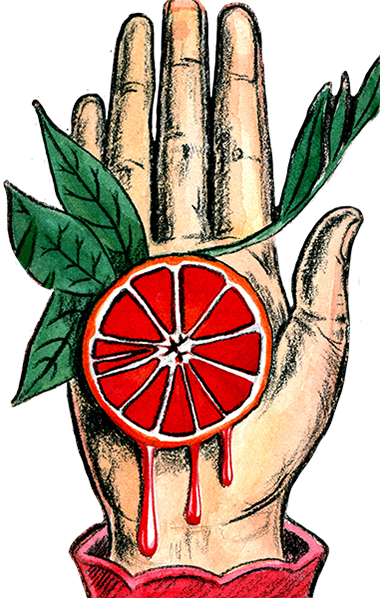Tunng Presents…DEAD CLUB

“Grief felt fourth-dimensional, abstract, faintly familiar,” Max Porter wrote in Grief is the Thing With Feathers. It is “everything. It is the fabric of selfhood, and beautifully chaotic. It shares mathematical characteristics with many natural forms.” And yet grief, loss, the act of dying, where we go, what becomes of those left behind, are still near-untouchable subjects, death a taboo beyond all others. We have barely begun to consider the glory of it, the banality, the wonder.
Death was a subject that had long fascinated Tunng’s Sam Genders; a preoccupation not born out of the macabre so much as a curiosity about the fundamental purpose of existence — but also a hesitancy he had noticed around others’ grief; a wish to be supportive in the right way, to say the right thing in the face of loss.
He read a great deal on the subject: Brandy Schillace’s Death’s Summer Coat, Megan Devine’s It’s OK That You’re Not OK, the American surgeon Atul Gawande’s Being Mortal: Medicine and What Matters in the End. Around the time of Tunng’s sixth album, 2018’s Songs You Make at Night, Genders found Max Porter’s novel Grief is a Thing with Feathers, and was struck by its power. Its viscerality and rawness and rage. Its beauty and love and connection. He passed Porter’s book around his band members.

“And somehow we ended up talking about it, and it became an idea,” he says. “We thought maybe we could make this into a project.” “And it is a project,” says the band’s Mike Lindsay. “It’s not even just a record, it’s a discussion, it’s a podcast series, it’s poetry, it’s short stories, it’s an examination.”
The breadth, detail and care of Tunng’s Dead Club is a striking thing. The podcast series, recorded by the band’s Becky Jacobs (who also moonlights as an audio producer), speaks to those who work in the field of death: philosophers, scientists, frontline workers, and beyond. Philosophers Alain De Botton and A.C. Grayling, discuss cultural attitudes towards death, alongside palliative care physician and author Kathryn Mannix, mentalist Derren Brown, forensic anthropologist Dame Sue Black, musician Speech Debelle, and Poetry editor of the New Yorker, Kevin Young. Samples from these discussions in turn appear on the album: Brown’s voice hovers over Fatally Human, Black considers what happens after we die on The Last Day, while on A Million Colours, Ibrahim Ag Alhabib of Tinariwen speaks of the traditions around death of the Tuareg in northern Mali.


It is an extraordinary record. Contemplative, intimate, celebratory. It includes collaborations with Max Porter, who wrote two new pieces for the album. It draws on the research the band conducted — nods to the Wari people of Brazil who eat their dead, discussions of consciousness and memory, Genders’s visit to a death cafe in Sheffield, and the Swedish art of Death Cleaning. It touches on personal loss, and fear, and humour and sorrow and love.
For months the six band members — Genders, Lindsay, Jacobs, Ashley Bates, Phil Winter, Martin Smith — discussed the subject at length. That they are a such a sizeable band, diverse in opinion and perspective, proved helpful: “When all those things come together that’s what makes it Tunng,” says Genders. “And because the subject of death is so powerful for people in different ways, we talked about the kinds of issues it might bring up, that we might need to be sensitive about.” When it then came to actually writing and recording, the process proved startlingly easy. “Because we’d engaged with the subject for so long that it kind of came effortlessly,” he says.
“Trying to turn this whole concept into an album, into music, without it being too sombre and difficult for people to listen to, that’s been the challenge,” says Lindsay. “We wanted it to be colourful and we wanted it to be kind of uplifting. Although some of it’s a lot darker than I was imagining it originally, I think it’s a thought-provoking and emotional journey; it doesn’t make me feel sad.”
For a while, Lindsay contemplated only using extinct instruments as a musical nod to the subject matter. Instead, the band alighted on the idea of the songs focusing around piano — “that traditional emotional instrument”. Ashley Bates, Tunng’s guitarist and a professional composer/arranger by day, created a chord-bed of D E A and D running throughout the record. It wasn’t just the acronym that appealed: “Those chords have a certain strange strangeness to them which is half-dark and half-hopeful,” Lindsay explains. “And I thought that brought the tone out.”
It was important, he felt, that Dead Club felt like a sonic departure from their previous records. “The music somehow needed to feel like it was in a different place,” he says. “But I wanted it to still sound like us.” The piece that unlocked the sound was the album’s final track, Woman, one of the collaborations with Porter. “It’s Martin playing the piano,” Lindsay says. “And he played that to Max’s story, and I think that gave a tone for the record to fit all of these things in between.”

Around the same time Bates was experimenting with clarinet and string parts and sending them to Lindsay. He adds “Also Phil came in and ended up playing loads of really nice melodic bass guitar as opposed to the Moog synth bass that was such a big part of the last record, all these elements adding a warmth that became a thread through the record.”
“We had skeletons of songs quite early on,” he continues. “And I was jigsaw-puzzling things together and finding flavours and tones throughout the following months. I wasn’t thinking ‘This track should be Derren Brown, this track should be Sue Black, this track should be A.C. Grayling, it was just there were certain tones already developed within the music and when I was listening to all the interviews certain voices and certain phrases seemed to fit with what the songs were about. I plucked out sections that spoke to me.” Like SDC, for example, inspired by Margareta Magnusson’s book The Gentle Art of Swedish Death Cleaning – How to Free Yourself and Your Family From a Lifetime of Clutter. “The Kathryn Mannix quote, which was quite heartfelt, I thought summed up what the song was about — plus I was looking for a tone of voice and a texture.”
Similarly, Lindsay found Derren Brown’s lines, “about storytelling, and campfires, and getting to the end of your life and hopefully you can feel like you’ve told your great story” stood out to him. “He said ‘Sometimes you end up being a bit part, but then because everyone else is flustering around and thinking about themselves, and not really much about you the person at the end of their life.’ And I just thought it was a really beautiful sentiment and it evoked bigger questions,” he says. “But also it felt very musical, it’s such lovely imagery, it just sounded really nice. A lot of my job on this record has been making it all sonically fit together and making it feel like a coherent piece of work that can get the message across but can also feel like a beautiful record.”

There is a zine of lyrics and interview transcripts to accompany the record and the podcast, album artwork by Lilias Buchanan and animations by Sam Steer. There were live events planned of course, collisions of music and readings and art, that the band had hoped might prompt conversations about the subject among the audience. Perhaps the hope of this project is not to commandeer grief, to explain it or provide a structure for loss, but to bring a new openness to the subject.
Genders recalls his visit to a death cafe, where 12 people — from the terminally ill to the newly-bereaved gathered to discuss the subject of mortality. “And almost immediately all of us were talking really, really deeply and openly and honestly about painful stuff and powerful stuff,” he says. “But it wasn’t at all sombre or melancholy. It was like sitting around with some mates and the feeling it felt like everyone had was ‘Oh, thank god! We can just talk!’ I came away feeling it was really enriching.”
We no longer have the religious script we once had that helped us to deal with death, he notes. “And I think a lot of us are struggling to know how to behave around it.” But there are skills we can learn, conversations we can have, cultural baggage we can question, to find an approach that reflects an experience that is “inherently human”, as Genders puts it. “I think in life in general there’s something very powerful in total honesty,” he says. “In being honest about all the different ways that you experience things. Because it’s nearly always the case that you discover everyone’s got the same anxieties, and the same fears, and having the same experiences. And maybe that can be powerful.”

